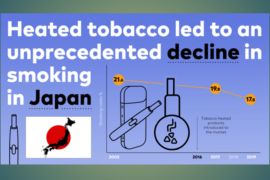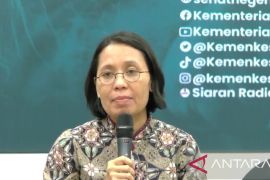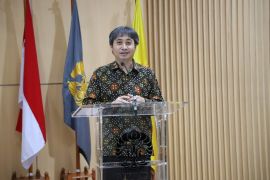Jakarta (Antara News) -- The 1st Asia Harm Reduction Forum 2017, a regional scientific and policy forum in Jakarta aimed at reducing the harm caused by smoking in Asia, was successfully closed last month in Jakarta, Indonesia. It surprisingly concluded that innovative products that contain nicotine or tobacco can play an important role.
"Smoking is the world’s leading cause of preventable death and disease, and its impact is particularly devastating in Indonesia and across Asia, where more than 60% of the world’s smokers reside. Unfortunately, for many years, those numbers have not been decreasing," revealed Dr. Konstantinos Farsalinos M.D, a wellknown Greek cardiologist.
More than a decade ago, the UK Royal College of Physicians explained that burning tobacco, not nicotine, causes the harms of smoking.
"The research revealed that nicotine, an important reason why people smoke, is not particularly harmful. Instead, it provides smokers with “cleaner” forms of nicotine, without burning tobacco, could save millions of lives, they said," said Prof. Dr. Achmad Syawqie Yazid, Drg., M.SS, Chairman of Public Health Observer Foundation (YPKP) Indonesia.
Today, those “cleaner” forms of nicotine exist: electronic cigarettes, which vaporize nicotine solutions, heated tobacco products, which eliminate burning, and smokeless tobacco are three examples.
Numerous scientific studies on these products, including a systematic review of all publications on e-cigarette science, have already been conducted. The evidence consistently and convincingly shows three things:
First, e-cigarettes and smoke-free tobacco products are undoubtedly much safer than smoking. For example, in August 2015, Public Health England, part of the British health ministry, reviewed all the available scientific evidence and concluded that e-cigarettes are 95% safer than cigarettes.
Second, electronic cigarettes and smokeless tobacco products can save millions of lives. A recent study from Georgetown University Medical Center, United States, published in the journal of Tobacco Control, stated that if smokers switch to smoke-free nicotine-containing products, as many as 6.6 million people in the United States could avoid premature death and more than 86.7 million years of life could be saved. We are talking here about saving or extending the lives of millions of smokers. If this number were translated into Indonesia and the rest of Asia, investment and innovation could give the tobacco industry a pathway into the 21st century and beyond, enormous social costs could be avoided, and tens of millions of lives could be saved.
Third, millions of smokers worldwide are now using e-cigarettes and smoke-free tobacco products instead of cigarettes. Asian smokers should have access to these products as well. In the European Union, 6.1 million smokers quit smoking with the use of electronic cigarettes, according to the 2015 data from Eurobarometer. Numbers have undoubtedly grown since then. Asian countries such as Malaysia has thousands of e-cigarette users. Furthermore, millions of smokers in Japan, Korea and more than 30 countries worldwide have switched from cigarettes to products that heat tobacco instead of burning it. Smokers in Asia are clearly ready for, and in fact need, better alternatives to smoking and smoking rates in Japan and other Asian countries never dropped that quickly before the introduction of alternative tobacco and nicotine products.
Many governments have begun to regulate e-cigarettes and smoke-free tobacco products as tobacco-related products, prohibiting their sales to youth, adopted quality and safety standards, and funded further scientific research even while the products are sold and available. Countries across Asia should consider the same, tailoring laws to their specific circumstances, but in a way that benefits smokers by encouraging them to switch, drives innovation and investment in the sector and ultimately saves lives, millions of lives.
By: Dr. Konstantinos Farsalinos M.D -- The author is a cardiologist and research fellow at the Onassis Cardiac Surgery Center in Athens, Greece at the Department of Pharmacy, University of Patras, Greece and at the National School of Public Health, Greece
Prof. Dr. Achmad Syawqie Yazid, Drg., M.SS -- The author is a Professor in the Faculty of Dentistry, Padjadjaran University, Bandung; Chairman of Public Health Observer Foundation (YPKP) Indonesia
Reporter: PR Wire
Editor: PR Wire
Copyright © ANTARA 2017











